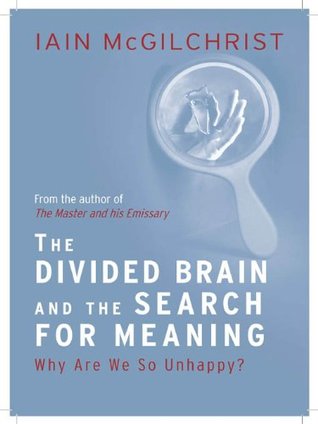More on this book
Community
Kindle Notes & Highlights
Read between
August 7 - August 13, 2022
we can only know the world as we have inevitably shaped it by the nature of our attention.
I take it that we bring about a world in consciousness that is partly what is given, and partly what we bring, something that comes into being through this particular conjunction and no other. And the key to this is the kind of attention we pay to the world. Of course what
There is no royal road to certainty about what the world is, or what it is like. We all, whether we are poets or scientists, or just going about the business of daily life, have to begin somewhere, by a leap of intuition, as to what kind of thing it might be we are dealing with – not just any leap, of course, always a guided one, but nonetheless fallible and uncertain.
What we do not expect to find, we just will not see: much elegant research demonstrates that we are essentially blind to what we do not think is there.
The right hemisphere underwrites sustained attention and vigilance for whatever may be, without preconception. Its attention is not in the service of manipulation, but in the service of connection, exploration and relation.
What are the key distinctions? One way of looking at the difference would be to say that while the left hemisphere's raison d'être is to narrow things down to a certainty, the right hemisphere's is to open them up into possibility. In life we need both. In fact for practical purposes, narrowing things down to a certainty, so that we can grasp them, is more helpful. But it is also illusory, since certainty itself is an illusion – albeit, as I say, a useful one.
Another way of thinking of the difference between the hemispheres is to see the left hemisphere's world as tending towards fixity, whereas that of the right tends towards flow.
The left hemisphere abstracts and generalises, where the right hemisphere's world remains truer to each embodied instance, and appreciates the unique.
The left hemisphere is not in touch with reality but with its representation of reality, which turns out to be a remarkably self-enclosed, self-referring system of tokens.
hemispheres. As Kant memorably put it, concepts without intuitions are empty, intuitions without concepts are blind.
More generally, despite apparently having at least secured ourselves some leisure (for what, by the way?), we now find ourselves slaves of the machine that was to liberate us, working longer hours and longer years, while the work itself gets less intrinsically rewarding: more controlled, less skill-dependent, lacking an obvious purpose other than the accumulation of more wealth.
wrong. Meaning emerges from engagement with the world, not from abstract contemplation of it.


